A psychological science-fiction adventure game that shows promise, but is currently hindered by bugs, awkward game mechanics, and some questionable storytelling.
Released: Steam
Type: Single-player
Genre: Adventure, Science-Fiction,
Psychological Thriller,
FPS
Developer: Incendo Software
Publisher: Incendo Software
Release date: 5 Sept, 2019


Introduction
Discrepant, the debut title from Incendio Software, is ambitious. It wants to blend a lot of disparate ideas together into something intellectually stimulating and darkly curious. It wants to carve out its own space in the adventure game genre and get noticed. And even though the graphics aren’t top-notch, it still very much wants to impress. It’s a tall order for a single-person studio.
The game, currently in Early Access on Steam, is a single-player, science-fiction adventure game with FPS elements. The story is designed to be released in several “chapters” over a period of months after the Early Access period comes to a close. There’s clearly a lot of passion and skill at work here; this isn’t a simple 16-bit platformer, but instead, a fully realized 3D game built on the Unreal engine. For a lone developer, it’s a fairly impressive piece of work. Incendio is keen to polish and improve the game, and it underwent several patches while I was writing this review.
In its current state the game feels more like an Alpha build than an Early Access title. There are numerous issues across the entire spectrum of the game’s design, from functional bugs to cracks in the storytelling. If the developer can continue making substantial progress on it, it could turn out to be a fairly interesting addition to the indie gaming landscape.

Identification Please
Discrepant is trying to be a lot of things, which puts it into murky water when considering which genres it fits into. It doesn’t want to be tucked into a tidy, well-defined box. This is admirable – the gaming world could use more complex and interesting ideas, and blending genres into a digital smoothy could produce some worthwhile results. But in order for such a blend to work, each aspect of the game needs to have a firm purpose that furthers the story, and the mechanics need to run smoothly. Clunky, clumsy, or buggy gameplay in one area tends to detract from the other things a game does well. And unfortunately, with Discrepant, that’s pretty much where it stands. Every time it does something proficiently, it does something else poorly, weakening its case.
Categorizing Discrepant takes a little bit of work. The easiest guise it wears is that of an adventure game. From a first-person perspective, the player is tasked with figuring out the mystery of the world they find themselves in. As is standard for adventure games, players will pick up items, discover clues, catalog notes in a journal, and solve puzzles.
An adventure game alone would be a more than capable way for Discrepant to tell its story. But the developer desires to do more: there are also weapons, violence, and death, which gives the game a foothold in the survival/first-person-shooter category.
And then there’s the clever side of Discrepant. Thematically, it desires to be a sort of science-fiction-based psychological thriller; a story that wants to sow doubt and uncertainty in the player’s mind before revealing twisted plot elements.
All of these various aspects could blend together nicely to create a fairly interesting game if all of those parts worked smoothly together. Unfortunately, at the time of this writing, they do not.
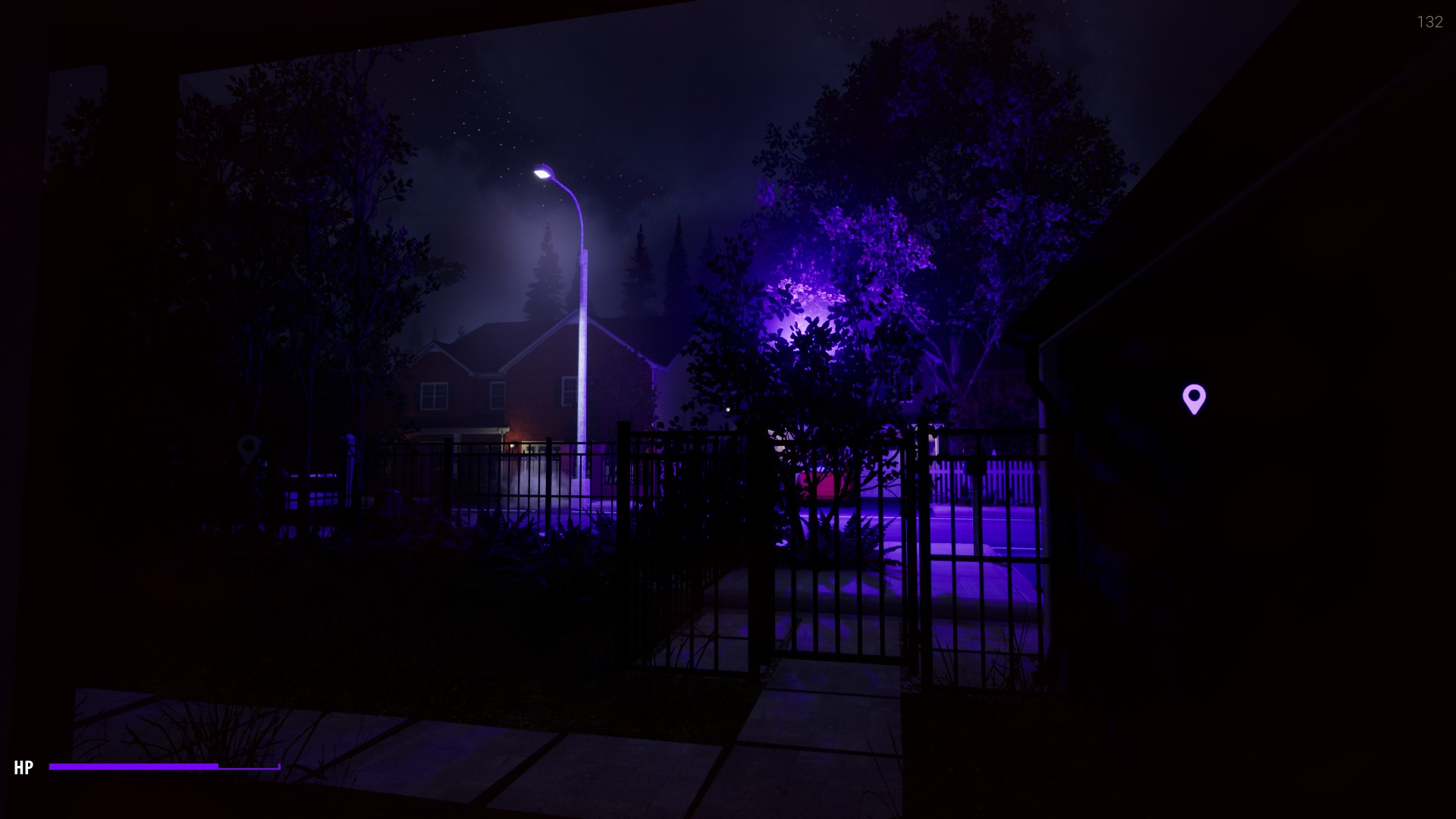
Setting
The game world is billed as a “dystopic sci-fi world that is slowly unwinding”, but in reality, it looks more like Ward Cleaver’s neighborhood. The only thing missing is Eddie Haskell running up to the front door and asking if the Beaver is home, and can he come out and play?
Is the game world dystopic? It doesn’t appear to be at first blush. And if it is, shouldn’t that be evident?
Discrepant sits in stark contrast to the opening moments of Half-Life 2, a game that is clearly set in a dystopian world, and knows exactly how to convey that information within the first few seconds of play. When the player-character, Gordon Freeman, is dropped off at a train station that is bereft of other travelers, it’s immediately obvious that we’re not in Kansas anymore. The train station is a dirty, unwelcoming place that is lined with chain-link fences and intimidating, well-armed guards directing sparse travelers with stern voices and threatening postures. Overhead, an ominous overseer pontificates on a giant television screen. The dystopian setting is obvious and clear. And in being obvious and clear, it properly sets the player’s expectations for everything that follows.
Discrepant’s first chapter begins in a neighborhood that looks idyllic by comparison. There are nicely manicured lawns, sliding glass doors, wrought-iron fences, cozy living rooms with giant television screens, and lavish swimming pools. It looks like an upper-middle-class suburb, and one simply wonders how much the HOA fees are going to run. If it’s dystopia, it might be worth checking into.
That doesn’t mean everything is okay. A loading screen informs the user that the neighborhood looks like a “war zone”, and humanity appears to be on the “losing side”. The player will eventually encounter ominous luminescent orbs patrolling the neighborhood. These giant glowing eyes seem intent on keeping the residents indoors. Failure to comply results in death. As if that weren’t enough, random humans fall from the sky for no apparent reason, turning into bloodless corpses on the sidewalk. Clearly, the world is having a problem. But is it dystopia? Or are Bad Things™ simply happening? These two ideas aren’t necessarily the same thing, and it feels like Discrepant doesn’t understand the difference. Setting the audience’s expectations properly is a crucial element to telling an effective story with twist reveals. Without clear setup, the twists just become gimmicks.
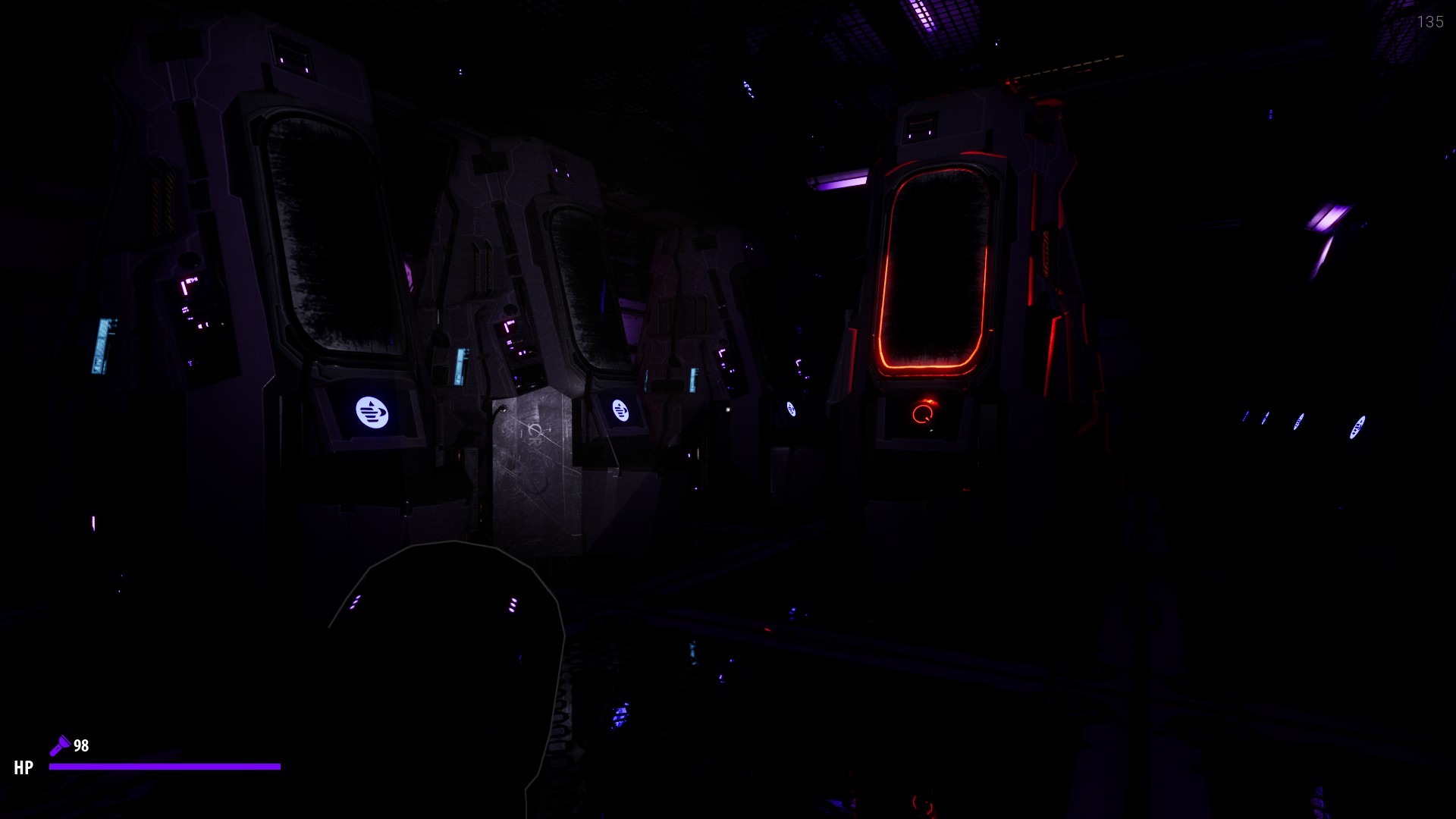
Story
The opening to Discrepant is reminiscent of the film Pandorum. The player starts out as Sue, a female character awakened from cryo-sleep on a space ship that is not functioning properly. Alarms sound and a voice enumerates issues with the spacecraft. Screens mention Proxima Centauri, and the computer voice tells of a hull exceeding temperature thresholds. The prologue is labeled as a “tutorial”, but the amount of help the game offers to the player during this level is questionable at best.
Upon completion of the prologue, and the game’s first chapter starts, this time with the player inhabiting the character of Sebastian, a man who awakens in a generic, comfortable, suburban house, albeit to sounds that suggest an earthquake, or explosions. Through notes and clues in the house we learn that Sue is, in all likelihood, his wife or girlfriend. Other visual cues and hints tell us that something is very, very wrong with the world.
The plot is colored with shades of Groundhog’s Day. There are tic-marks on the inside of a cabinet door, for instance, that suggest the passage of time or the repeated iteration of events. The ambiguity of their purpose could be a pretty neat hook for the story, but the game gives too much away early on when the loading screen informs the user that there are X minutes until the next “reset”. Discrepant is a game that just doesn’t know how to restrain itself.
Discrepant tries very hard to be ambiguous and clever at the same time, and it doesn’t always succeed. The Steam page describes it as a title that has “twists around every corner”, but one wonders when playing the prologue and first chapter, if the game isn’t simply trying to cram every neat idea it ever had into a single shopping cart. As any good magician will tell you, the heart of a good twist is misdirection, and the setup is critical to the reveal. Misdirection is about keeping the audience’s eye on one thing – and believing that one thing wholeheartedly – until the storyteller is ready to reveal the truth. Pulling this off requires a dogged dedication to the setup; a complete commitment to the lie. And that’s sort of the problem with Discrepant, at least in the early going. It’s throwing so many ideas at the audience, that the player has no real idea what that lie might be.
Psychological twists only really work as long as the truth is obscured from the audience until the last possible moment. Logical misdirection and gaslighting are frequent tools to keep the protagonist, and audience, off the scent. The joy of a good twist often occurs when the truth is finally revealed, and the plot points are traversed a second time, now seen in a totally different, but equally accurate, context. Without this reflective element inherent in the psychological genre, the twisty plot points just become a collection of disparate ideas cobble together for no other purpose than to elicit confusion from the audience. And seems to be where Discrepant is – it just wants to confuse with cleverness, but in reality, it feels like it’s trying too hard.
In the film The Matrix, Morpheus tells a still doubting Neo that “there’s a difference between knowing the path and walking the path.” Discrepant may very well be a smart science-fiction thriller, but it feels like the gaming embodiment of Neo at that moment; it knows the path, but it hasn’t figured out how to walk it yet.
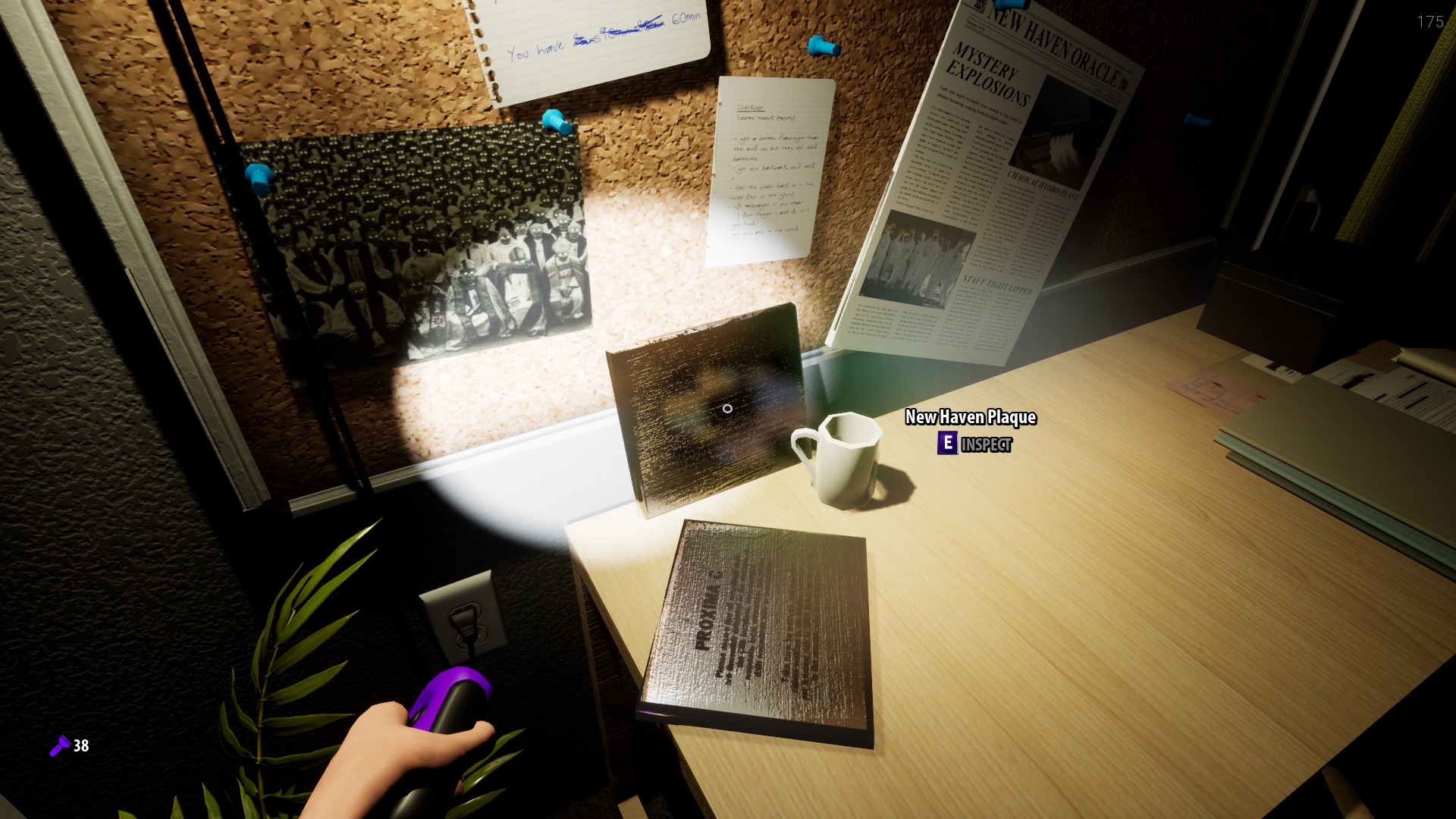
Show Me Don’t Tell Me
Early in the game, a man falls from the sky, screaming, and lands on the sidewalk, dead. His precipitous drop is certainly mysterious and alarming. But there’s no time to think about that, because a pair of goggles also fall from the man’s face, and the game’s objective system immediately instructs the user to acquire them. Equipping the goggles reveals the world to be something other than it seems.
Is this world nothing more than a computer simulation? Possibly. The notion that reality is simply a simulation has become fertile ground for contemporary science fiction to till. But if that’s the case, why the early tell? More to the point, why are the game mechanics telling us to acquire the goggles, and not the story itself? These are the kind of cracks in the storytelling foundation that put Discrepant on shaky ground.
There’s an old adage in storytelling that goes, “show, don’t tell”. The idea is that the author shouldn’t inform the audience of anything directly. The characters and world-building should instruct. It’s a common mistake for novice storytellers to directly inform the audience of some important fact or anecdote, often out of fear that the audience won’t understand what the author is trying to convey.
Discrepant appears to suffer from this a bit too much. Notes, hand-drawn maps, and emails have been left behind in Sebastian’s house to guide the player along. These clues are, more or less, immersive and required to propel the adventure forward. Unfortunately, other aspects of the game, like the goggles, do not receive the same treatment. It seems, at times, as if the game is desperate to tell the audience what it already knows, out of fear that the player won’t be able to figure it out.

The Tutorial Level That Wasn’t
One of the more frustrating parts of the game is the opening prologue, which is also described by the game as a “tutorial” level. One would expect a tutorial to do a fair amount of hand-holding then, such as directing the player to points of interest, describing what certain items are for (such as adrenaline, for healing), and explaining to the player what movement options are available (like crawling through a narrow opening, or climbing up a ladder).
The game does almost none of these things.
As an example, early in the Prologue, the player-character finds several red vials that look like they could be used for healing. Unfortunately, in reality, they’re empty and useless. The game doesn’t inform the player of this fact, so the player fumbles around attempting to “use” them in futile fashion. It’s not until later on, when the player finds a green vial that they can actually use, that they realize the red ones are simply waste products. The game could help the player out with a dialog window and some descriptive text when they encounter the red vials, but it does not.
What the tutorial level does do, which seems counter-intuitive in a game like this, is hurl hazards and deadly events at the player in an attempt to rapidly kill them, as if it were in competition with Cuphead to see which game can be more absurdly deadly. For instance, the game will hint that the player needs to use a heavy weapon (like a wrench) to break a window. Then, a second later, after the player breaks the window, the character will die from a glass cut as they try and cross through it. Was this quick death necessary? Does the story benefit from being this deadly?
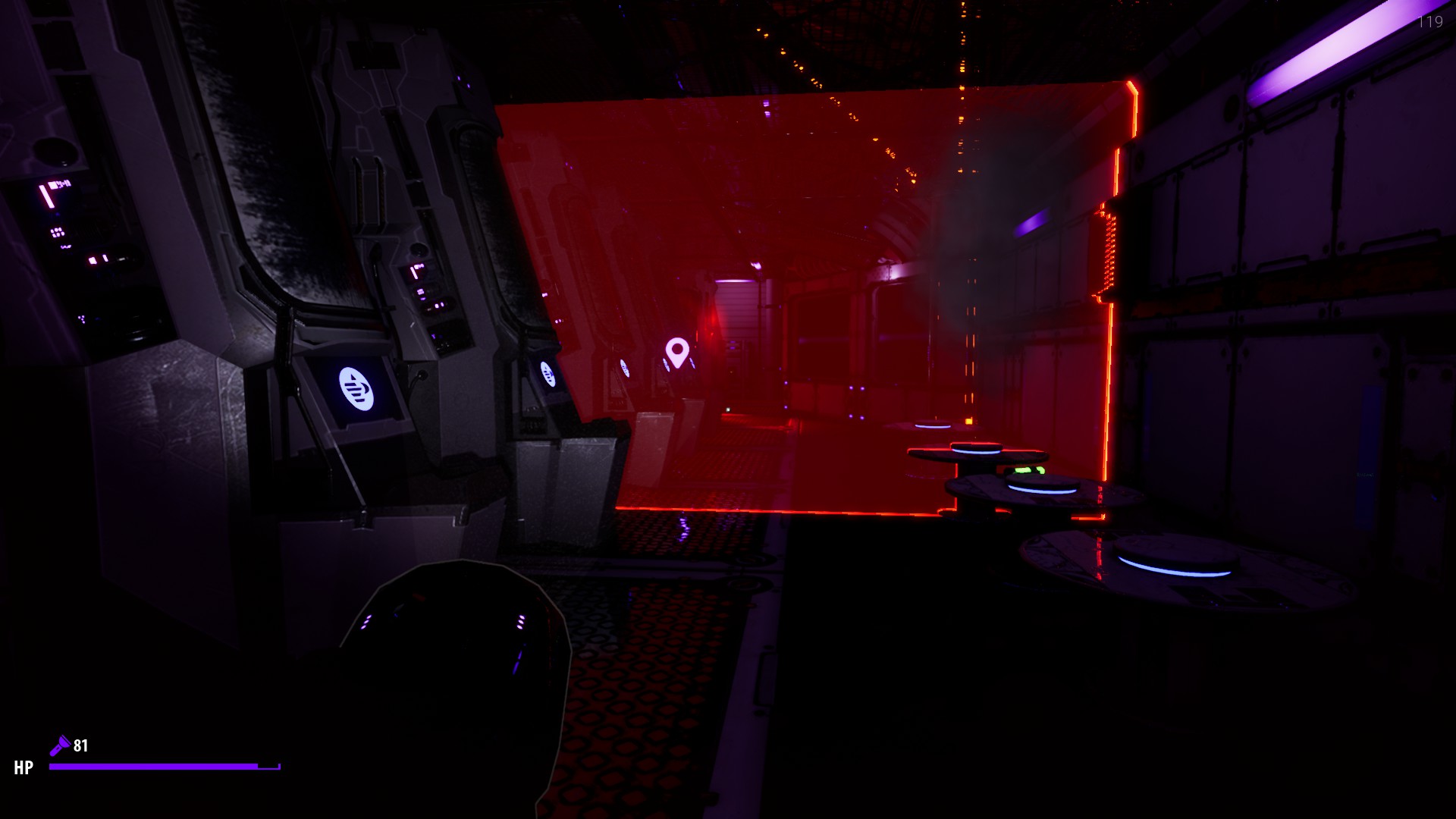
At the beginning of the prologue, a large wall of laser-light moves back and forth across the corridor, hurting the player. It will kill them in a few passes if they do not turn it off. When the player finds the computer terminal to control it, they are given two choices. Only one of these actually turns off the field, and the terminal seems to stop working after making a choice. This is a case where a choice seems to exist for no other reason than to allow it, not because it’s useful or necessary. A single button on the terminal would have been sufficient.
There is one point in the prologue when the game actually does behave like a tutorial. As the player approaches a ladder, a nice dialog window pops up with detailed instructions, informing the player that the ladder can, in fact, be traversed up and down. The dialog shows exactly which buttons to press in order to achieve movement. Why the entire opening sequence doesn’t function exactly like this remains a mystery.
Let it be said that climbing a ladder in Discrepant might be the very best thing it does. A number of video games have attempted to implement climbing ladders, and quite often they fail with very clumsy execution. Discrepant’s implementation is a pleasant surprise. It works cleanly and easily, and is useful at other points in the game.
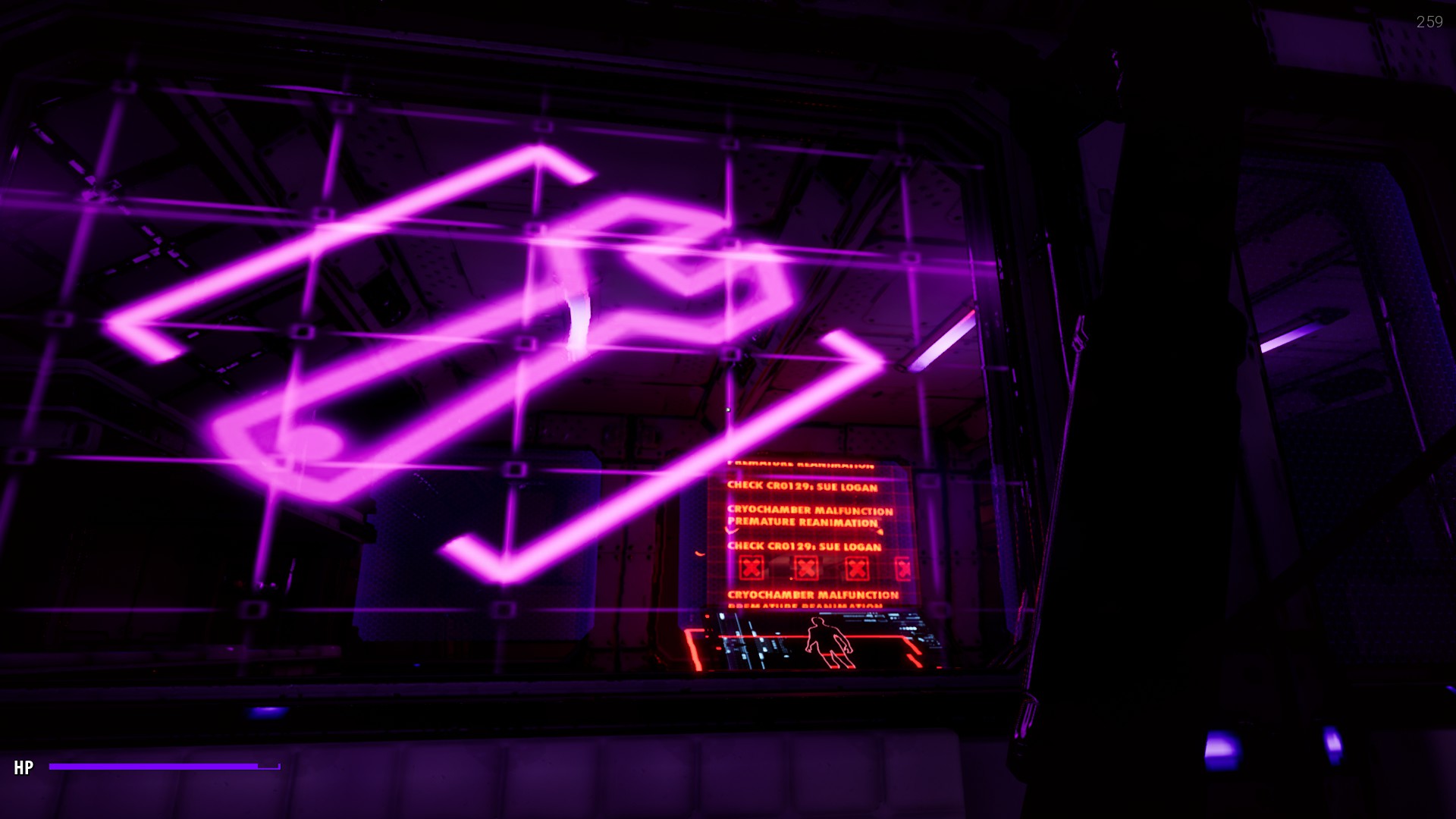
Game Mechanics
In its current state, the game plays more like an Alpha build than an Early Access title. There are numerous issues, both graphical and functional, and some of the mechanics are clumsy at best.
As stated previously, it does some things very well. Climbing, for instance, is superb. It’s easy, automatic, and the controls feel smooth. By comparison, swinging a weapon – something that every first-person shooter game knows how to do fairly well – feels like chopping wood. Underwater. After a fifth of Jack Daniels.
This is not an exaggeration.
Wielding a weapon seems like it’s eventually going to be necessary at some point in the game, but with mechanics this sluggish it’s a distressing prospect. And that begs the question: is it really even necessary to included FPS-style action elements if the game can’t pull them off smoothly? Is wielding a hatchet or a gun really necessary to tell this story?
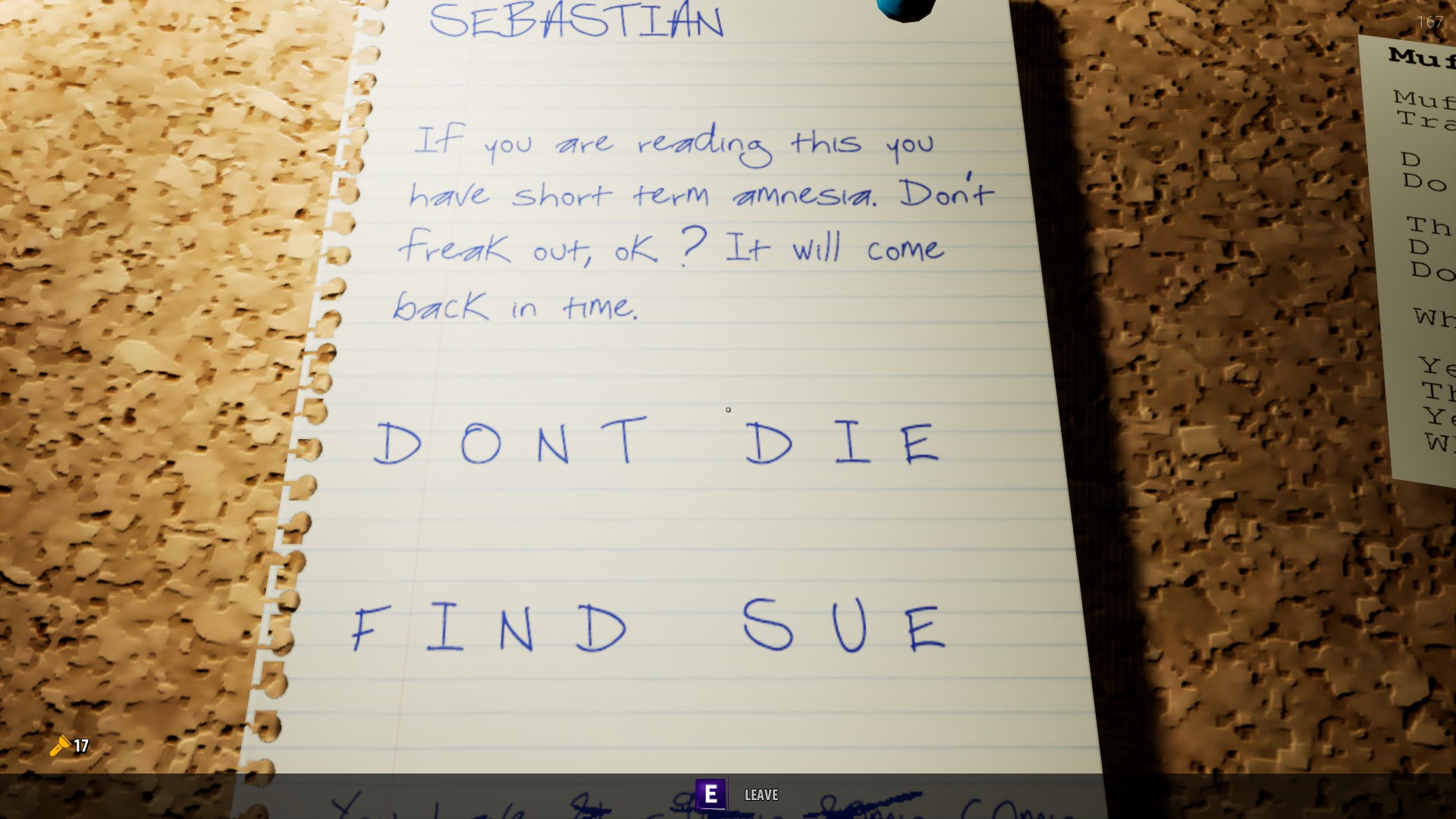
Fans of adventure games don’t often require, or even ask, for their titles to be hyper-realistic visual affairs. For that reason, Discrepant is well-suited to the genre. The Pandorum-like spacecraft in the opening prologue, and the suburban town of Chapter 1, aren’t rendered with the same photo-realistic accuracy as a games such as Titanfall 2 or Doom. And they don’t need to be. In an adventure game, the story is king. The graphics in Discrepant are good enough.
Conversely, fans of first-person games do feel that graphics quality is very important in such titles, as is tight gameplay. High-resolution textures, quick, visceral action and smooth controls are paramount to the genre. Discrepant has none of these things, but yet still tries to incorporate these elements into the game. So the question becomes: at what cost? Does the addition of first-person shooter-style elements enhance the game more than the clumsy implementation hurts it? The answer, at least early in the game, is no.
Adventure games have a long history of working around violent solutions for the sake of a simpler, more puzzle-driven approach to gameplay. Inventory items are often utilized in specific situations without the need for FPS mechanics. Need to break a window? Fine. Let the player click on the window and choose a tool from inventory to do the job. If no such tool exists in the backpack, inform the user to find one. Discrepant doesn’t go this route, because it wants the FPS element to be a part of its style, but in playing through the first chapter, it feels like it would benefit from a different approach.
Moving around in Discrepant (aside from the aforementioned climbing) is often a clumsy affair, with various obstacles blocking the player’s path when they ought not do so. The flashlight is bright but too focused to be very useful, and the player seems to have very limited control over where to aim it. That lack of control makes the flashlight less handy than it should be at precisely the moments the player needs it the most.
For example, there’s a Scrabble board on the kitchen table that can be inspected. The house is pitch dark, but the player has a flashlight in their hand. Unfortunately, when the player clicks on the Scrabble board, they are zoomed into to look at it (good), but the flashlight is not used to illuminate it (bad). It next-to-impossible to see what is on the board unless the player chooses a different way to handle the situation. Are the words on the board important? Why isn’t the flashlight illuminating it? How come the player can’t make this work easily? Clumsy mechanics like this are a problem throughout the game.
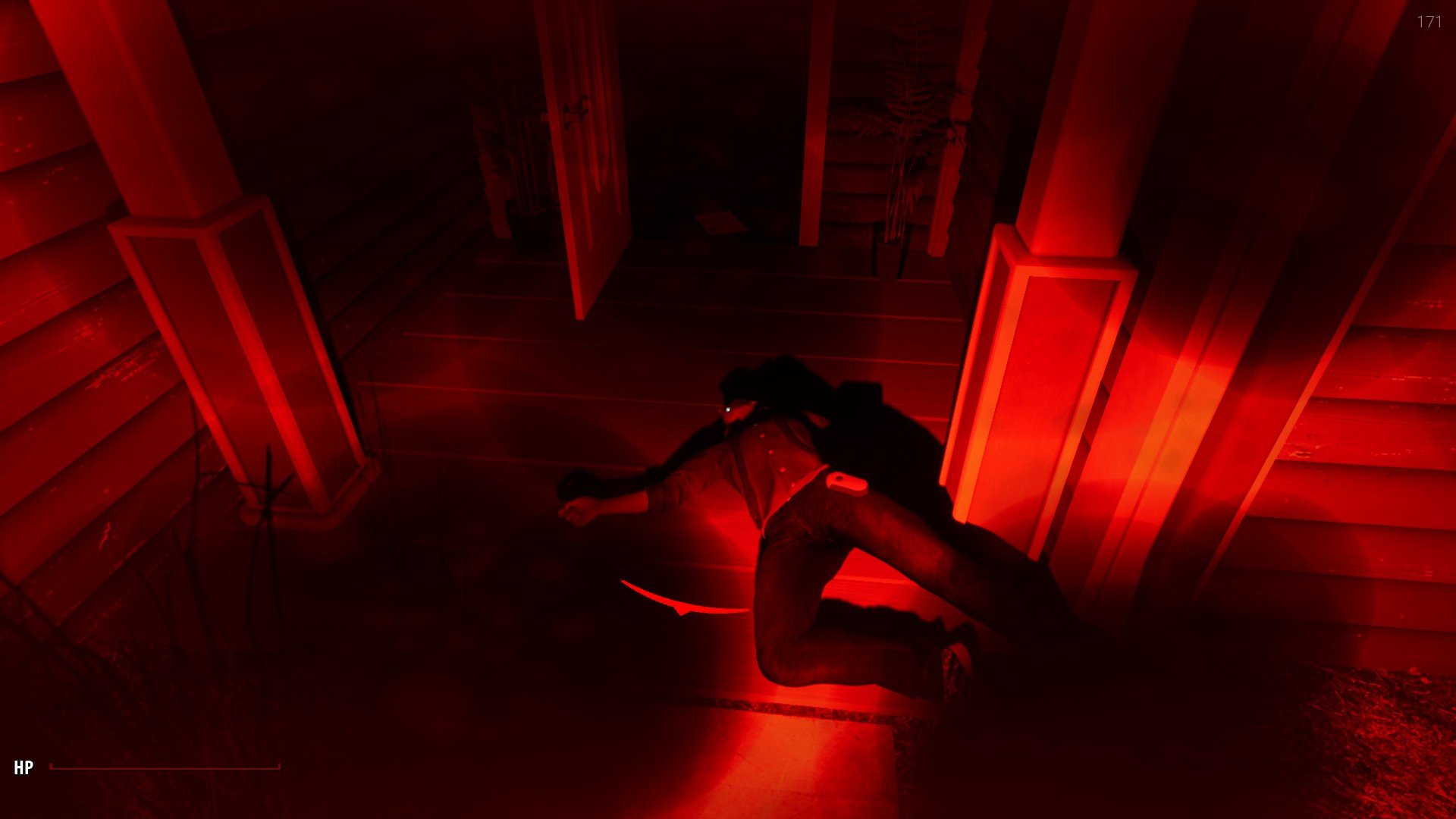
Bugs
On top of the awkward mechanics are a host of bugs that plague the gameplay. At times, some of these bugs prevented the advancement of the story altogether during the time I was playing it.
The inventory, for instance, doesn’t always display all the items in it, making it difficult to utilize necessary items at specific times. Before a patch, the game specified the wrong control for unequipping certain items. Sentinel creatures can get stuck in the entryway to the house, preventing exit. Since there are no other routes out of the residence, the player-character is then forced to confront the sentinel, which leads to a quick death. At one critical point in the story, the game completely froze up after a loading screen. This happened repeatedly, at exactly the same point in the story, and prevented all further progress.
On the plus side, several patches were released during the time I previewed the game, and they did solve many issues (sometimes while raising new ones). The developer is attentive to the project and actively working on it, so there is some hope that it will eventually round into shape if given enough time.

Verdict
There is an expectation that an Early Access title will be functional, and that what users are paying for when they purchase the game is a chance to help shape the game’s design; to suggest feature improvements, influence narrative, or alter the mechanics. This is potentially true of Discrepant, if it can get past its current issues. As it stands now, anyone who spends $9.99 to buy the game in its current state needs to be aware that they are essentially paying to beta test the product. Players expecting a fully functioning game with minimal bugs will be sorely disappointed. That said, if a player really does want to get in on the ground floor of an Early Release title and have some potential influence over its final version, the responsiveness of the developer makes Discrepant a prime candidate for such interaction.
As for the story, Discrepant has some neat ideas, but whether those ideas can be woven into a complete and compelling narrative is unknown at this time. It feels like a game that is simply trying to do too much. It reveals when it needs to obscure, and creates ambiguity when it should not. Perhaps the Early Access adopters will help round it into shape. For now, caution is advised.

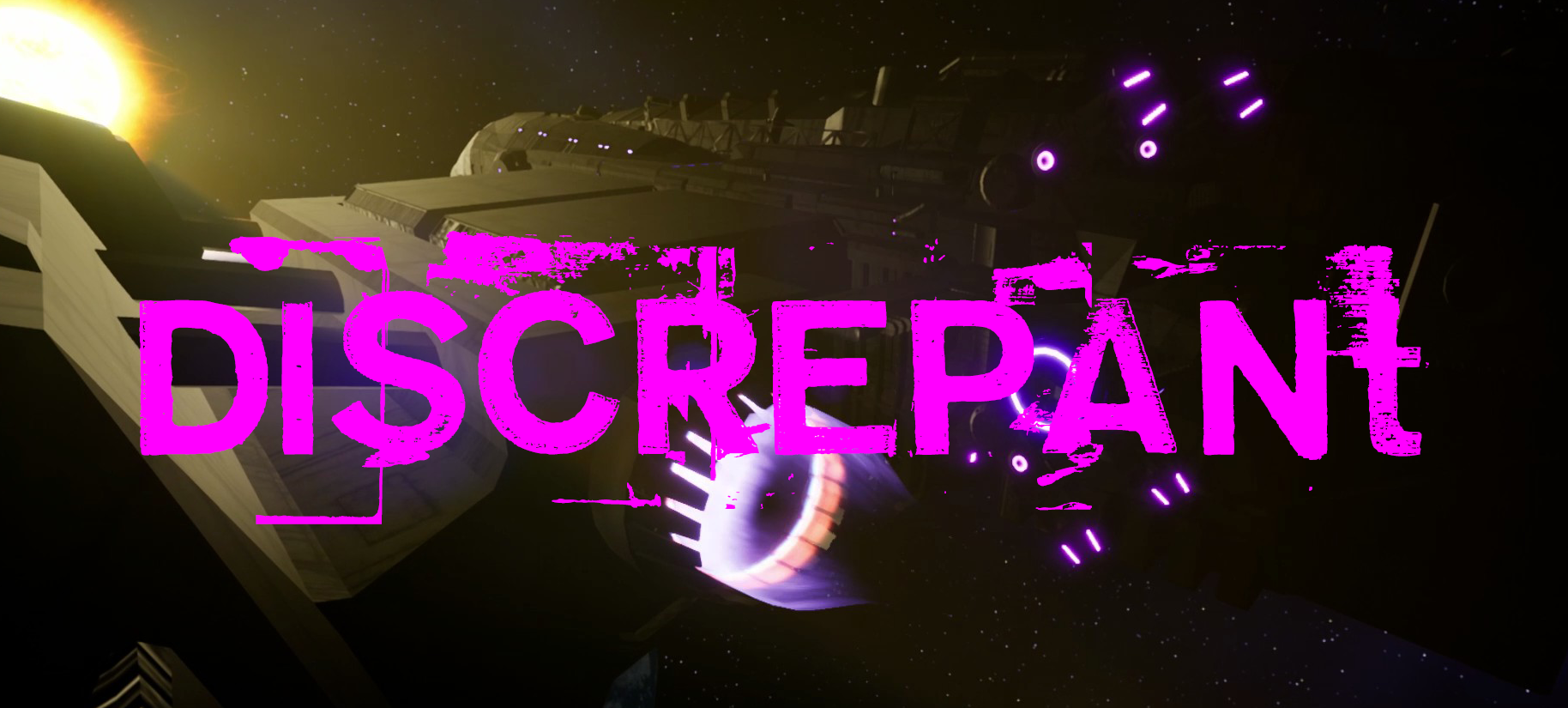





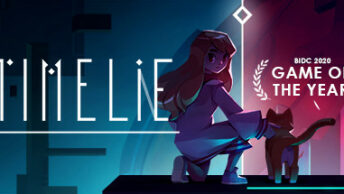



Hey Colorsfade, Nice honest review. Constructive criticism is what all EA games need. And you have given the developer a good insight on what needs to be done to help succeed with this. Good work.
Thanks Arpeggio! Appreciate it man.